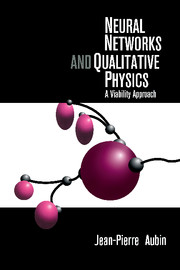Book contents
- Frontmatter
- Contents
- Preface
- Acknowledgements
- 1 Neural Networks: A Control Approach
- 2 Pseudoinverses and Tensor Products
- 3 Associative Memories
- 4 The Gradient Method
- 5 Nonlinear Neural Networks
- 6 External Learning Algorithm for Feedback Controls
- 7 Internal Learning Algorithm for Feedback Controls
- 8 Learning Processes of Cognitive Systems
- 9 Qualitative Analysis of Static Problems
- 10 Dynamical Qualitative Simulation
- Appendix 1 Convex and Nonsmooth Analysis
- Appendix 2 Control of an AUV
- Bibliography
- Index
8 - Learning Processes of Cognitive Systems
Published online by Cambridge University Press: 05 August 2012
- Frontmatter
- Contents
- Preface
- Acknowledgements
- 1 Neural Networks: A Control Approach
- 2 Pseudoinverses and Tensor Products
- 3 Associative Memories
- 4 The Gradient Method
- 5 Nonlinear Neural Networks
- 6 External Learning Algorithm for Feedback Controls
- 7 Internal Learning Algorithm for Feedback Controls
- 8 Learning Processes of Cognitive Systems
- 9 Qualitative Analysis of Static Problems
- 10 Dynamical Qualitative Simulation
- Appendix 1 Convex and Nonsmooth Analysis
- Appendix 2 Control of an AUV
- Bibliography
- Index
Summary
Introduction
We propose in this chapter a speculative dynamical description of an abstract cognitive system that goes beyond neural networks to attempt to take into account some features of nervous systems and, in particular, adaptations to environmental constraints. This personal viewpoint of the author is but one of the several attempts to model cognitive processes mathematically. It is presented primarily for the purpose of stirring up reaction and prompting further research involving other techniques and other approaches to this wide field.
Before we look at the evolution of nervous systems for useful suggestions regarding the means they have used to master more and more complex cognitive faculties, we shall start from the fact that an organism must adapt to environmental constraints by perceiving them and recognizing them through “metaphors” with what we shall call “conceptual controls.” This problem of adaptation is not dealt with explicitly in most studies of neural networks. This chapter is devoted to highlighting the roles of cognitive systems in this process.
The variables of the cognitive system are described by its state and a regulatory control (conceptual control). The state of the system (henceforth called the sensorimotor state) is described by
the state and the variations of the environment on which the cognitive system acts,
the state of cerebral motor activity of the cognitive system, which guides an individual's action on the environment.
- Type
- Chapter
- Information
- Neural Networks and Qualitative PhysicsA Viability Approach, pp. 139 - 159Publisher: Cambridge University PressPrint publication year: 1996



